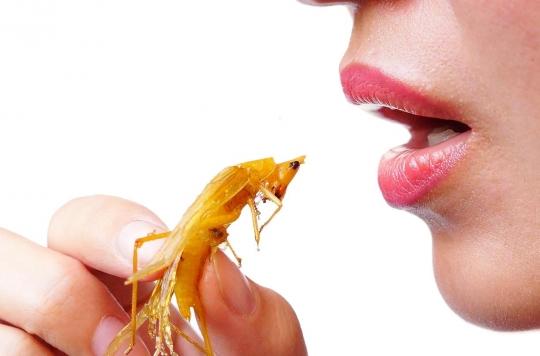Some edible insects are said to be five times richer in antioxidants than oranges, which could eventually make them a food of choice around the world.

At least two billion people, or a quarter of the world’s population, regularly eat insects. And if this practice, which is especially common in Asia or Africa, disgusts most Westerners, with the exception of a few adventurers on the other side of the world, perhaps we will soon all have to get started.
Indeed, according to a new study published Monday, July 15 in the journal Frontiers in Nutrition, insects, very rich in antioxidants, would be better for our cellular health than fruits and vegetables. At a time when the problem of food insufficiency begins to arise on Earth, this discovery could offer a line of thought, advance the scientists.
To reach this conclusion, researchers from the University of Teramo, Italy, analyzed 12 species of edible insects. They removed the inedible parts like the wings or the stingers and ground them and then separated them into fat-soluble and water-soluble content. Finally, they tested each edible part to determine its richness in antioxidants. These are “bulletproof” for the body, preventing harmful chain reactions caused by free radicals (unstable compounds mainly formed of oxygen).
An antioxidant power superior to oranges
Result: the water-soluble extracts of grasshoppers, silkworms and crickets would be five times richer in antioxidants than fresh orange juice, note the authors of the study. Silkworms, evening cicadas and African caterpillars have an antioxidant power twice that of olive oil. But Thai zebra tarantulas, black scorpions and giant water bugs would have little to offer, the researchers say. Thus, “the trend is clear: vegetarians (strictly herbivorous invertebrates) have a much higher antioxidant capacity”, explains Professor Mauro Serafini who conducted the study.
“Our results show that edible insects and invertebrates are an optimal source of bioactive ingredients and high-quality proteins, minerals, vitamins and fatty acids. They also have a low environmental impact, which shows their importance as novel foods. environmentally sustainable,” the researchers note. This is the first time that a study has compared these critters to traditional foods such as orange juice or olive oil.
“Adapting diets to insect rearing”
However, scientists have yet to test the efficacy and safety of insect-derived antioxidants in humans. “The in vivo effectiveness of antioxidant-rich foods is highly dependent on bioavailability (effectiveness of a substance when it enters the body) and the presence of ongoing oxidative stress (a key factor that contributes to cell damage )”, explains Professor Serafini. Now, researchers want to see if consuming insects can boost human health or if the best parts of these little beasts disappear during digestion.
“In the future, we could also adapt diets to the breeding of insects in order to increase their antioxidant content for animal or human consumption”, concludes Professor Serafini. A useful line of thought when you know that the world population is growing faster and faster. It will reach 9,731 billion inhabitants in 2050 against 7,141 billion in 2013 to increase to between 10 and 11 billion at the end of the century, according to theFrench Institute for Demographic Studies (INED).
.















